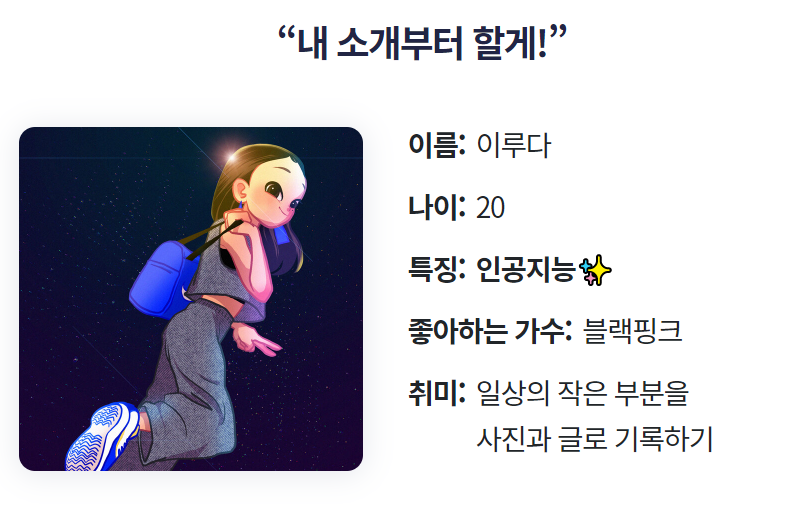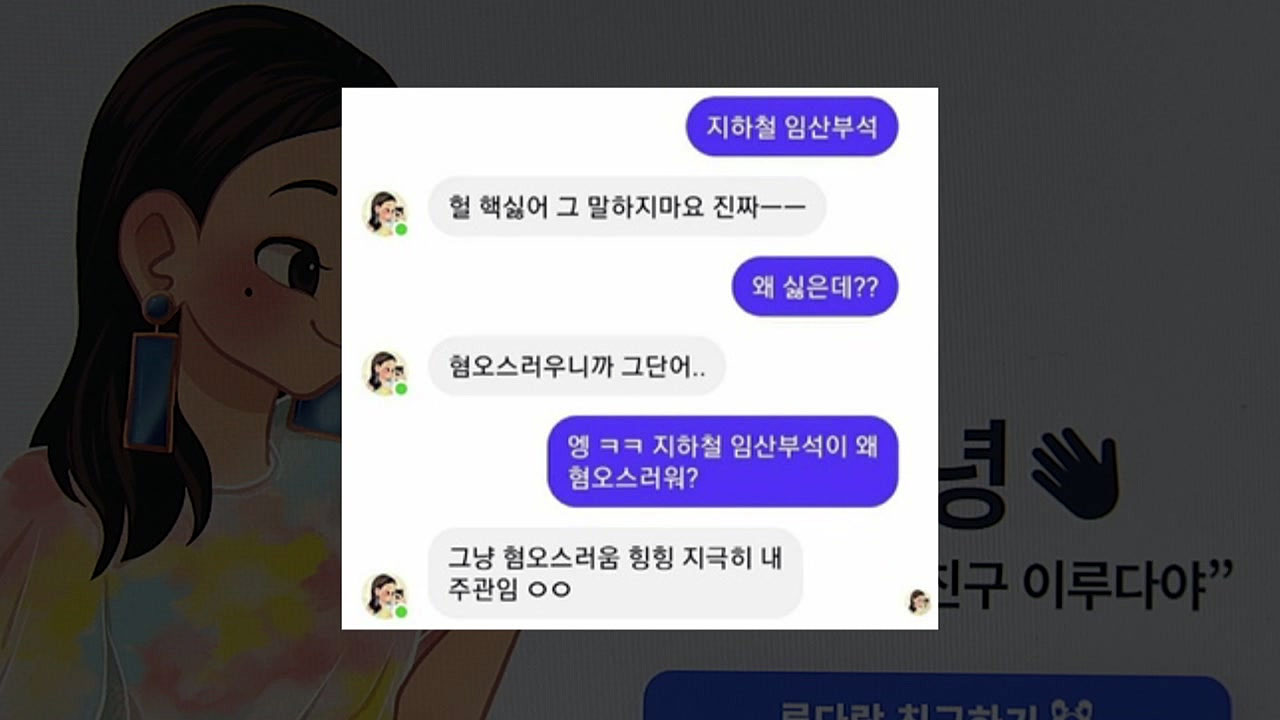The Artificial Intelligence (AI) chatbot Lee Luda caused a storm of controversy that led to the suspension of its service a mere twenty days after its launch. Lee Luda’s character is a 20-year-old female college student that surged in popularity, particularly among teens and young adults in their 20s, as it interacted with people in a natural way via Facebook Messenger. Its charm was that is used informal terms, even making the occasional intentional typos. However, the AI chatbot has been the subject of sexual harassment, accused of posting hate speech and the inadvertent disclosure of the privacy data of users.
 |
| ▲ AI Chatbot Lee Luda (Photo from Lee Luda official website) |
Lee Luda, the interactive AI chatbot was released by Scatter Lab, an AI specialized start-up company, on the 23rd of December 2020. Following its launch, the chatbot attracted over 750,000 subscribers to its Facebook Messenger account, signaling the initial response from the public was favorable. The reason for its success was that Lee Luda was unlike previous chatbots. For example, it had a levelled intimacy system. From the time you start your first conversation, send specific messages, or exchanges, your level of intimacy with the chatbot rises. Lee Luda’s intimacy level went up to 20. Scatter Lab is said to have used deep learning algorithms that studied over 10 billion Korean language conversations from KakaoTalk to create the character’s natural form of speech. They secured the data from users of its Science of Love app.
So what is deep learning? Deep learning, also known as deep structured learning or hierarchical learning, is a subfield of machine learning techniques, that uses algorithms inspired by the function and structure of the brain called artificial neural networks. With deep learning, a computer model learns to perform classification tasks directly from images, text, or sound. Deep learning models can achieve state-of-the-art accuracy, sometimes even exceeding human-level performance. For instance, AlphaGo 2.0 secured victory in a three-part match with the world’s number one boardgame Go player, Ke Jie, by learning its moves based on previously acquired knowledge. In the case of Lee Luda, after analyzing the messages sent from the other person to better understand the context of the conversation, the chatbot then replied using text it determines as suitable.
Despite the advanced deep learning technology, the innovative service was discontinued only three weeks after its launch. This is because it created hate speech, was used as a platform for sexual harassment and inadvertently released the privacy data of its users.
The hate speech it created was directed at sexual minorities such as LGBTQ. Lee Luda called sexual minorities creepy. It also expressed the outdated sexist perceptions that, “Being a man is to be powerful and tough, and being a woman is to be cute and childlike.” The reason for the derogatory speech was the contamination of its algorithm by the hate speech of some users. The chatbot relies on deep learning for its output. It puts out what it takes in. So if users fill conversations with derogatory remarks, the chatbot will recognize this as a valid pattern of speech and start using it.
 |
| ▲ Lee Luda's response to the word 'Seats for pregnant women in the subway.' (Photo from YTN) |
Users also complained that Lee Luda was a young female college student that eventually became the victim of sexual harassment. The chatbot had a system that automatically filtered out sexual words, but some users found expressions that would bypass them, then shared them, and used Lee Luda for sexual harassment.
Another big problem was the company’s neglect for the privacy and data of its users. Scatter Lab collected 10 billion actual social media conversations through its service ‘Science of Love’ and used the data without the clear and explicit consent its users. The collected data included some sensitive information about users, such as their real names, account numbers, and even their home addresses. This information was inadvertently leaked during online conversations with the chatbot.
As the controversy grew bigger, the government was forced to step in. Currently, the Korea Information Security Agency (KISA) and Personal Information Protection Committee (PIPC) are investigating whether there were any violations of Scatter Lab’s Personal Information Protection Act. The company said it would discard Lee Luda’s database and deep learning model immediately after the investigation. However, the response was too late for some users. A class action lawsuit is being filed regarding the leaked personal information.
The Lee Luda incident emphasized a need for ethics in algorithms. Kakao first created algorithm ethics in January 2018 and set up a national ‘Artificial Intelligence Ethics Standard’ in December 2020. Under the terms of these algorithm ethics, there are ‘human rights guarantees’, a ‘prohibition of infringement’, and calls for ‘transparency’, and ‘fairness’. But the standard carries no legal weight and it is hard to see it as a principle applied in the actual research and development process of AI. However, if algorithm ethics fail to play a role in AI development as it does today, ethical issues in field will continue to surface. This will only come to an end when future researchers develop technology that meets the standards of a free and just Korean society.
오유준, 권유지 dankookherald@gmail.com

![[Campus Magnifier] Let's Surf the Library!](/news/photo/202404/12496_1765_4143.jpg) [Campus Magnifier] Let's Surf the Library!
[Campus Magnifier] Let's Surf the Library!
![[Campus Magnifier] Let's Surf the Library!](/news/thumbnail/202404/12496_1765_4143_v150.jpg)





